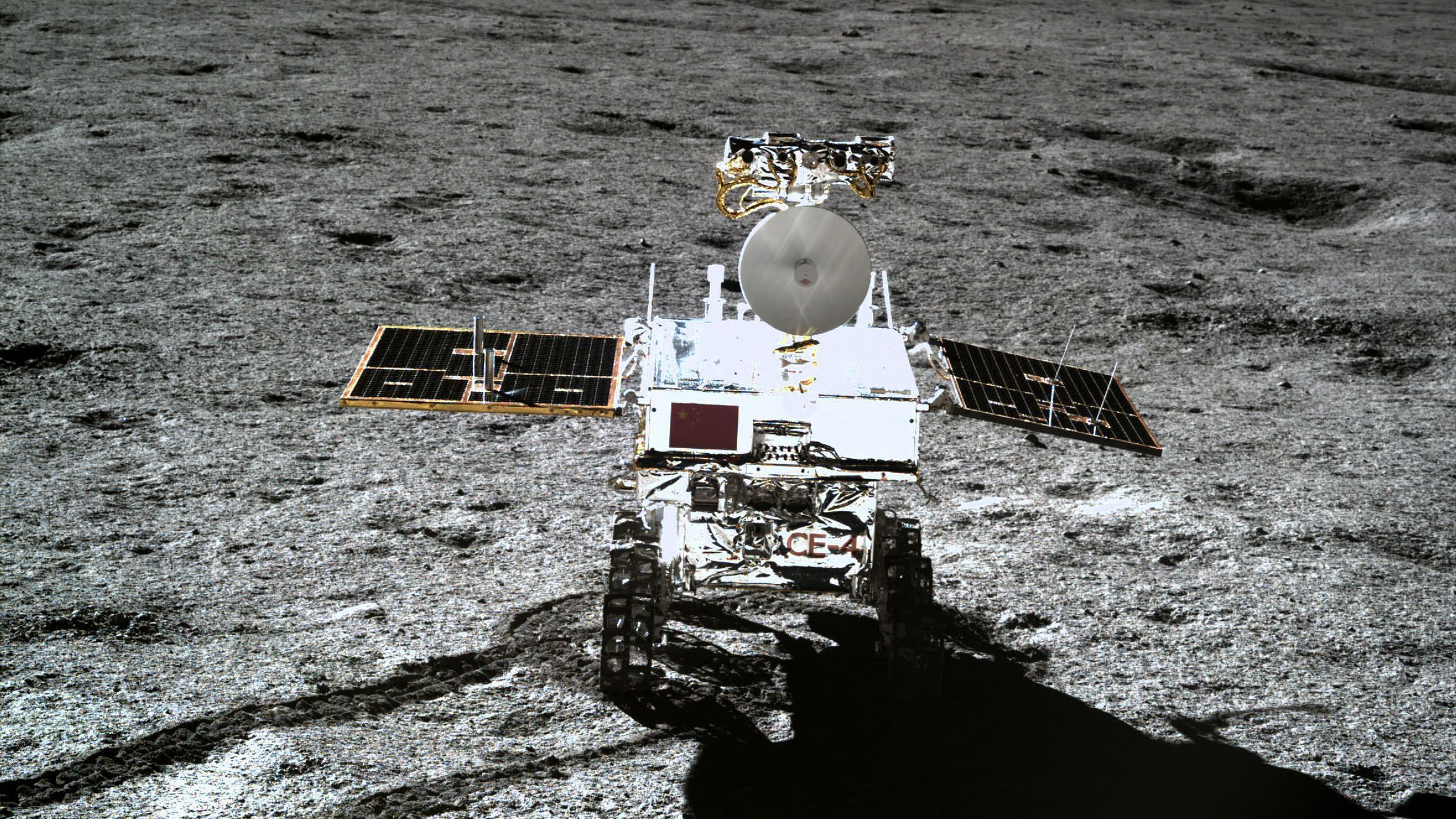
Science
15:19, 29-May-2019
Chang'e-4 probe and Yutu-2 rover resume work on sixth lunar day
By Cui Weinan

China's Chang'e-4 lunar exploration mission and its assistant Yutu-2 rover have ended their dormant state and restarted automatically as scheduled on May 28, 2019.
One full day on the Moon is equivalent to 28 days on Earth. The Chang'e-4 probe landed on the Moon at the beginning of this year and has now entered the sixth month, or sixth lunar day, of its activity.
According to the China National Space Administration (CNSA), the neutron radiation detector and low-frequency radio detector carried by Chang'e-4 have restarted to observe particle radiation. Such instruments will be used to collect data that can help researchers learn more about the composition of the lunar mantle that exists between the crust and the core.
The panorama camera, infrared hyperspectral imager and other instruments carried by the Yutu-2 rover will be helpful in surveying the terrain and conducting further scientific tasks.
The Yutu-2 rover will move along a route designed by scientists before launching, according to a CNSA statement released on May 11.
China's Chang'e-4, which arrived in the Von Karman crater on January 3, is the first spacecraft to land on the far side of the Moon.

SITEMAP
Copyright © 2018 CGTN. Beijing ICP prepared NO.16065310-3
Copyright © 2018 CGTN. Beijing ICP prepared NO.16065310-3